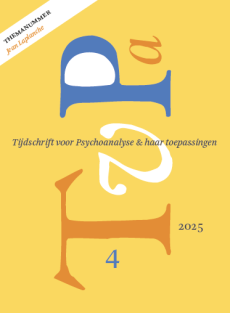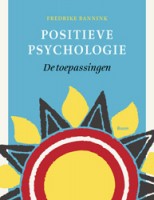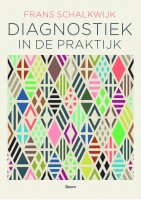Schizofrenie vanuit psychoanalytisch perspectief
Summary
According to Freud, hypochondria is a basic element in schizophrenia. In a general sense hypochondria is the reverse of withdrawal of the libido from objects into the self and causes an upsurge of the drives within the self which puts the limits of the self under pressure. This upsurge causes the anxiety that always accompanies experience of hypochondria. However, hypochondria does not become a psychotic phenomenon until its schizofrenic dimension can be related to the vicissitudes of the representations and the affects that are both the psychic representatives of the enhanced drives. On the level of the representations, the schizophrenic aspect comes to the foreground in linguistic expression in which metaphorical meaning is taken literally. Expressions referring to his or her own body are understood and experienced by a schizophrenic person as innervations of his own body. Language loses its symbolic force. On the level of the affects it is argued that the drives, normally a source of pleasure, are experienced as a destructive power. The experience that the drives convey to the subject is that his or her body is bad, giving rise to a tendency to self-mutilation. The primary pleasure-ego aims at a destruction of the drives in order to protect itself against their aggressive power. From this point of view, the difference between schizophrenia and paranoia may be appreciated. The paranoid succeeds in keeping outside what is bad. The schizophrenic, on the other hand, fails to project the bad outside himself and is continually perforated by it from within. One further aspect of schizophrenic language is explored: the withering away of the signified, resulting in a world of empty signifiers. The link with unconscious thing-presentations is severed.
Literatuur
- Bernet, R. (1996), Over de premissen van Lacan: manifestatie en terugtrekking van het onbewuste in de drift, de voorstelling en het affect. In: N. Kok en K. Nuijten (red.), In dialoog met Lacan. Boom, Amsterdam/Meppel, p. 65-85.
- Castoriadis-Aulagnier, P. (1975), Violence de l’interprétation. Collection ‘Fil Rouge’. Presses Universitaires de France, Parijs.
- De Waelhens, A. (1972), La psychose. Collection Pathei Mathos. Nauwelaerts, Leuven/Parijs.
- Freud, S. (1911), Psychoanalytische opmerkingen over een autobiografisch beschreven geval van paranoia (Dementia paranoides) (‘Het geval Schreber’). Nederlandse Editie: Ziektegeschiedenissen 4. Boom, Amsterdam/Meppel, p. 19-96.
- Freud, S. (1914), Ter introductie van het narcisme. Nederlandse Editie: Psychoanalytische Theorie 1. Boom, Amsterdam/Meppel, p. 31-64.
- Freud, S. (1915), Het onbewuste. Nederlandse Editie: Psychoanalytische Theorie 2. Boom, Amsterdam/Meppel, p. 95-140.
- Freud, S. (1916), Metapsychologische aanvulling op de droomleer. Nederlandse Editie: Psychoanalytische Theorie 2. Boom, Amsterdam/Meppel, p. 159-174.
- Freud, S. (1925), De ontkenning. Nederlandse Editie: Psychoanalytische Theorie 3. Boom, Amsterdam/Meppel, p. 117-122.
- Moyaert, P. (1983), Taal en onbewuste. Freud en Lacan over de ‘Urverdrängung’. Nederlands Tijdschrift voor Wijsbegeerte 75(2), p. 173-191.
- Vergote, A. (1980), Pulsion de mort et destins mortifères de la pulsion. Textes. Ecole Belge de la psychanalyse 6, p. 20-34.
 © 2009-2026 Uitgeverij Boom Amsterdam
© 2009-2026 Uitgeverij Boom Amsterdam
ISSN 1382-516x
De artikelen uit de (online)tijdschriften van Uitgeverij Boom zijn auteursrechtelijk beschermd. U kunt er natuurlijk uit citeren (voorzien van een bronvermelding) maar voor reproductie in welke vorm dan ook moet toestemming aan de uitgever worden gevraagd:
Behoudens de in of krachtens de Auteurswet van 1912 gestelde uitzonderingen mag niets uit deze uitgave worden verveelvoudigd, opgeslagen in een geautomatiseerd gegevensbestand, of openbaar gemaakt, in enige vorm of op enige wijze, hetzij elektronisch, mechanisch door fotokopieën, opnamen of enig andere manier, zonder voorafgaande schriftelijke toestemming van de uitgever.
Voor zover het maken van kopieën uit deze uitgave is toegestaan op grond van artikelen 16h t/m 16m Auteurswet 1912 jo. Besluit van 27 november 2002, Stb 575, dient men de daarvoor wettelijk verschuldigde vergoeding te voldoen aan de Stichting Reprorecht te Hoofddorp (postbus 3060, 2130 KB, www.reprorecht.nl) of contact op te nemen met de uitgever voor het treffen van een rechtstreekse regeling in de zin van art. 16l, vijfde lid, Auteurswet 1912.
Voor het overnemen van gedeelte(n) uit deze uitgave in bloemlezingen, readers en andere compilatiewerken (artikel 16, Auteurswet 1912) kan men zich wenden tot de Stichting PRO (Stichting Publicatie- en Reproductierechten, postbus 3060, 2130 KB Hoofddorp, www.cedar.nl/pro).
No part of this book may be reproduced in any way whatsoever without the written permission of the publisher.
Nieuwsbrief Boom Psychologie
Meld u nu aan en ontvang maandelijks de Boom Psychologie nieuwsbrief met aantrekkelijke aanbiedingen en de nieuwe uitgaven.
Aanmelden


